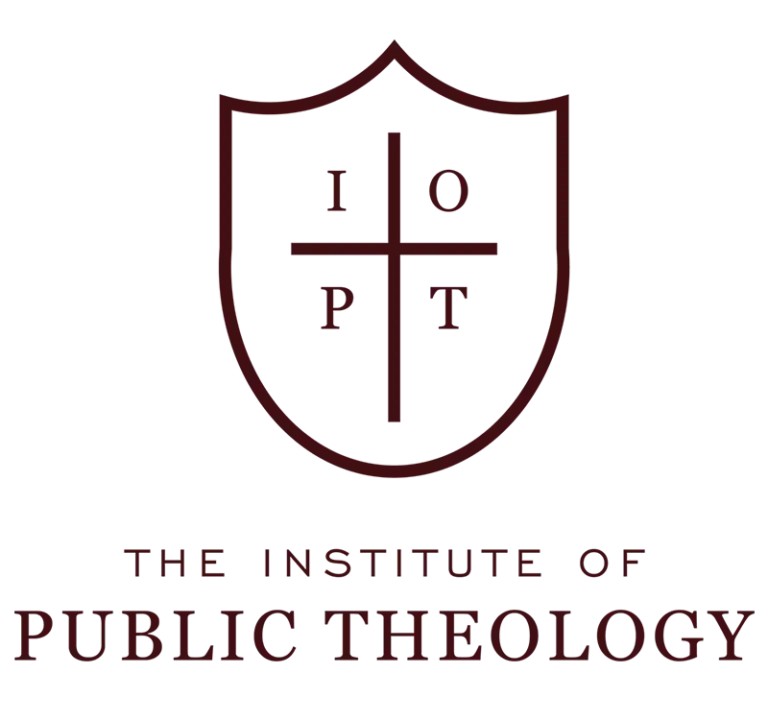If a biblical expositor/theologian arrives at a conclusion, on the basis of exegesis, that the Bible teaches there is only one God who is infinite, eternal, and unchangeable in his being, wisdom, power, holiness, justice, goodness, and truth, and who alone is self-existent having created all things and presently sustaining all things that are not him, I would conclude that such an exegete, in all of those assertions, has arrived at a notable body of biblical truths about God. If he further concludes through a synthesis of biblical texts, using the analogy of faith, that this God exists eternally in three persons without division of essence or disruption of divine simplicity with each person fully participating in and manifesting the infinite excellence of essential deity in perfect unison with each other person, I would conclude that such an exegete is biblically sound and in full accord with the historic witness of the church. Further, if this person arrives at the conclusion that the persons of the Triune God are denominated as, and exist in eternal relation as Father, Son, and Holy Spirit with identifiable aspects of distinct personhood operating immanently and internally that give immutable standing to this tri-fold denomination within this one God, I would embrace such syntheses as truthful and biblical. I would conclude that such a person has a biblical view of God; consequently, we should be willing to engage each other in discussion as brothers with the hope of our pressing forward in understanding of yet more truths to be affirmed about this God that we commonly worship and adore.
I would also say that many realities about this God we do not comprehend—some because none of us grasps all of the biblical revelation with perfect clarity, some because they are as yet unrevealed, and an overwhelming “some” because God is fully comprehensible by none but himself. Other doctrinal propositions, however, may, in the thinking of some, have sufficient biblical data to be valid beliefs, while others do not find the synthesis of the data sufficiently coherent to establish a doctrine. Unless demonstrable heresy is involved, these points constitute areas in which constructive and fraternal dialogue can occur without bringing recrimination on our discussion partners.
For example, I am convinced that believers’ baptism by immersion is the only biblical baptism. I remain thoroughly unconvinced by all the doctrinal/exegetical/covenantal extrapolations used to support infant baptism; I do not rule practicers of infant baptism outside the pale of true Christianity nor do I conclude that their local congregations are not true churches. I would contend that their local assemblies are necessarily, not just pragmatically, corrupt because of the tendency of a mispracticed ordinance; but they are still real Christian churches. And it seems to me, that the New Testament ordinance of baptism is much easier to understand, explain, and accept than some of the more intricate extrapolations we make as we seek to give an increasingly robust expression to the being and attributes of God. Without doubt, the doctrine of God is intensely more central to a definition of orthodox Christianity than certain points of ecclesiology, but also it has a more forbidding aspect, is more filled with mystery, and so must evoke as much humility as it does intense scrutiny when brothers are privileged to explore the mystery together.
Nevertheless, I would seek to convince the exegetical theologian who has affirmed the Trinity in terms mentioned above that eternal generation has excellent credibility from the standpoint of the witness of the church universal, theological coherence, and exegetical fullness. In illustrating the historical consent to this doctrine, we acknowledge the careful work of Athanasius and the Cappadocians whose views were summarized well by Basil’s statement, “We are not speaking of brothers; we are acknowledging Father and Son. There is identity of ousia since the Son derives from the Father, not made by a command, but begotten from his nature.” The relevant part of the Creed of Nicaea in this discussion stated: “And in one Lord, Jesus Christ, the Son of God, begotten from the Father, only-begotten, that is, from the substance of the Father, God from God, light from light, true God from true God, begotten not made, of one substance with the Father, . . . came down, and became incarnate and became man.” If the Son is begotten from the Substance or nature of the Father, as stated by the Nicene Creed (and as is so with all sons of all fathers), then in the case of a being whose essence is eternal the begetting must be eternal. It cannot be wrong to say, as Basil does say, that the “Son exists in full godhead as the living Word, the offspring of the Father.” [Bettenson, Later Christian Fathers, 82, 83].
Arius identified begetting with creating. Nicene orthodoxy, including the extended defense by Athanasius and others, rightly saw these two ideas as quite distinct and set it forth in perhaps the most succinct and important polemical assertion ever made, “begotten, not made,” and since he is begotten of the nature of the Father, he necessarily is of one essence with the Father. Arius argued for synonymity of begotten and create in order to protect the singularity of God by denying the essential deity of the Logos. Some of our contemporary orthodox brothers, reflecting on modern etymological studies of Greek, have concluded that monogenes has nothing to do with begetting but means unique. They have not, however, adopted Arius’s concerns or conclusions, but, on the ground of a more full exegesis of related texts, affirmed the conclusions of Nicea of a single essence of deity manifest in three persons. They embrace Nicene orthodoxy but do not employ the argument based on eternal generation.
I look at some Baptist witnesses to this doctrine. My good friend John Gill in his admirable defense of eternal generation believed that without this doctrine one might as well surrender to tritheism or modalism. I would seek to demonstrate that such an entailment makes a coherent argument, but would not accuse my dialogue partners of either error, if they clearly denied them. The Philadelphia Association felt strongly the connections this doctrine has with the entirety of Christian doctrine. When an older member of one of the churches wrote some pieces questioning its veracity, he later confessed his error, and reaffirmed the doctrine. “We desire,” the Association responded, “that all our churches would take notice thereof, and have a tender regard for him in his weak and aged years, and in particular, of that great truth upon which the Christian religion depends; without which it must not only totter, but fall to the ground.” They printed the note of recantation and reaffirmation, by the man, Joseph Eaton.
“I freely confess that I have given too much cause for others to judge that I contradicted our Confession of faith, concerning the eternal generation of the Son of God, in some expressions contained in my paper, which I now with freedom condemn, and am sorry for my so doing, and for every other misconduct that I have been guilty of, from first to last, touching the said article, or any other matter.” [Minutes of the Philadelphia Association, 47, 48]
My personal doctrinal defense goes something like this. I believe that the doctrine of eternal generation (as well as double procession of the Spirit) is a necessary consequence from the very ideas of Father and Son as persons in the Godhead. It provides a consistent principle of interpretation for an abundance of Scriptures, and gives a coherent conceptual framework for maintaining unity of essence and distinction of persons in the Trinity. If the Son is eternally Son, then he must be eternally generated. The mode of existence relating and distinguishing fathers from sons in Scripture is generation (Genesis 5:3, 6, 9, 12). Fathers do not create sons but give rise to them from their nature. Our sons follow us in time because we are temporal creatures, but they still are of our nature. God’s Son, as generated must share his nature and thus must be eternal, and thus eternally generated.
Biblically, when God is referred to as the “Father of our Lord Jesus Christ,” this must refer to their eternal relationship for the Father is not the Father of the human nature of Christ (Colossians 1:3; Ephesians 1:3; Romans 1:1-4; 1 John 1:3). First John 5:18 refers to the one who keeps us as “the one begotten of God” and identifies him as the true God and eternal life. This appears to be a clear reference to begottenness as eternally operative in distinguishing between Father and Son in person while maintaining unity of essence.
The words “Son” and “Son of God” appear in an absolute sense as the one who was sent in that he exhaustively knows the Father, perfectly executes the will of the Father, occupies the same sphere of existence as the Father, and receives his self-existence from the Father. The title of identification, Son, refers to his pre-existing status in the event of his being sent, his appearing: “the reason the Son of God appeared was to destroy the works of the devil” (1 John 3:8); “We know that the Son of God has come” (1 John 5:20); “If what you heard from the beginning abides in you then you too will abide in the Son and in the Father” (1 John 2:24); “But of the Son he says, ‘Your throne O God is forever’” (Hebrews 1:8 where the point is that sonship and deity are identical); “When the fullness of time had come, God sent forth his Son” (Galatians 4:4). “All things have been handed over to me by my Father, and no one know the Father except the Son and anyone to whom the Son chooses to reveal him” (Matthew 11:27); “For as the Father hath life in himself, so hath he given to the Son to have life in himself (John 5:26) “And the Father himself, which hath sent me, hath borne witness of me” (John 5:37). As a distinctly identifiable person, the Son receives from the Father not only a task to execute by his infinite power and through the mystery of his incarnation, but his interminable self-existence (“life in himself”). It seems to me that only his begottenness explains this.
The idea of firstborn relates to the generation of the Son. The writer of Hebrews (1:5) cited Psalm 2:7 “You are my Son; today I have begotten you.” This citation in the Psalter refers to the eternal decree by which the nations that oppose the Son will be brought low. They vaunt themselves against him but they do not realize that it had already been decreed that God’s Son would rule the nations: “I will declare the decree: the Lord hath said unto me, ‘Thou art my Son; this day have I begotten thee. Ask of me, and I shall give thee the heathen for thine inheritance, and the uttermost parts of the earth for thy possession” (Psalm 2:7, 8). This was the decree as established in eternity in which the Father addressed his Son in terms of begottenness. The text specifically ties his sonship to his begottenness. To his eternally begotten Son, the Father promised the subduing of all nations through the work of redemption covenanted within the triune God as the means by which “every knee shall bow, . . . and every tongue confess that Jesus Christ is Lord, to the glory of God the Father” (Philippians 2: 10, 11). In Hebrews 1, the ordering of the argument begins with the decree, proceeds through the incarnation, the righteous life, and his rule over all, because, not only has he created all things, but he has perfectly executed the work of redemption. The word that is used to speak of his identity as he came into the world is “firstborn” (Hebrews 1:6). He, as firstborn, is brought into the world that he created and has the rights of the firstborn over it, for he is the Son of God, eternally the firstborn. Also, because of his redemptive work, he has the rights of the firstborn over the church, which he has redeemed with his own blood. His position as the Son, eternally generated, works out in his being the “first born of [over] every creature,” (Colossians 1:15) and he became head of the church in that he is the “firstborn from the dead.” While it is true that the particular rights spoken of come only because the Son assumed both the nature and obligations of true humanity, the dignity, honor, and status by which he is over the church and over creation comes from his rights as firstborn, the uniquely and eternally generated Son. The rights of the firstborn in Old Testament law are built on the eternal relation between the Father and the Son as one of eternal generation. Our being sons by adoption and through regeneration gives us a likeness to Christ in increasing measure so that he might be the “firstborn among many brethren” (Romans 8:29;Colossians 3:10).
On the other hand, I also would argue that eternal generation entails eternal submission of the Son to the Father. This submission is both natural and voluntary. It is natural because it involves one of several aspects of functions intrinsic to the father/son relationship. It naturally involves equality of essence (Genesis 5:3); it naturally involves reciprocity of love (Genesis 22:2; John 14:21, 31; 17:23, 24; Colossians 3:14). For our purpose we focus on its involvement naturally of submission.
The commands of honoring one’s father and mother, of obeying one’s parents reflect a principle intrinsic to the Trinity of the submission of the Son to the Father. Submission of person does not entail difference or inferiority of essence. We choose the word submission, for etymologically it speaks of the fitness of the Son’s being the sent one. Missio denotes sending as a representative and under the authority of another. The Son has been commissioned (“The word that you hear is not mine but the Father’s who sent me.”) He is the emissary to execute all that is objectively essential to the redemption of the elect. He is submissive in the natural relation of Father and Son and thus the perfect congruity of his being the one under the covenantal arrangement to be sent, while the Father sends.
Those who accept the doctrine of eternal generation should accept eternal submission. If not they omit one of the chief means of expressing the order implied in that inter-personal, inner-trinitarian relationship consistent with the natural moral goodness of the submission of children to parents (Exodus 20:12; Ephesians 6:1,2).
As there are three persons in the Trinity without a contradiction of singularity and simplicity of essence, so there are three natural and necessary self-conscious expressions of the single essence, eternally active, and intrinsically manifest without any division in the divine will. Each person, however, manifests the immutable, unalterable divine will in a way fitting for the distinction of person, but perichoretically related. Each person sets forth the singularity of the decree of God with an eternal and immanent consciousness of and consent to all the economic provisions of the decree, having naturally and eternally assumed such roles in that decree that reflect and maintain the personal distinctions necessary to the Trinity. The decree arises from and perfectly fits the personal distinctions resident within the Trinity, and nothing naturally attached to the personal distinctions involves a subordination of essence. Surely the Son has eternal consciousness that he is not the Father and that his fitting operation in the eternal covenant of redemption is distinct from that of the Father and of the Holy Spirit. No division exists in the will of the one God, but the Son and the Spirit have full consciousness that their expression of that will is unique to their eternal personhood. A sentence, therefore, like that affirmed by the Philadelphia Association in giving an exposition of the three-personed aspect of God is acceptable terminology in this discussion: “They have each of them understanding and will.”
Several passages in Holy Scripture indicate individuated personal expressions of the univocal will set forth in the eternal decree of redemption of the triune God. “Jesus said to them, ‘My food is to do the will of him who sent me and to accomplish his work” (John 4:34). “Truly, truly, I say to you, the Son can do nothing of his own accord, but only what he sees the Father doing. For whatever the Father does, that the Son does likewise” (John 5:19). “For as the Father raises the dead and gives them life, so also the Son gives life to whom he will” (John 5:21). “I can do nothing on my own. As I hear, I judge, and my judgment is just, because I seek not my own will but the will of him who sent me” (John 5:30). “For the works that the Father has given me to accomplish, the very works that I am doing, bear witness about me that the Father has sent me” (John 5:36). “All that the Father gives me will come to me, and whoever comes to me I will never cast out. For I have come down from heaven, not to do my own will but the will of him who sent me. And this is the will of him who sent me, that I should lose nothing of all that he has given me, but raise it up at the last day. For this is the will of my Father, that everyone who looks on the Son and believes in him should have eternal life, and I will raise him up at the last day” (John 6:37-40; cf 1 John 5:18, “he who was born of God protects him.”)
Doctrinal syntheses that may be made from these passages included the following.
- The Son of God has consciousness that he is the one sent by the Father, that he has a task assigned by the Father, a people given to him by the Father, and that he is fully capable, as of the essence of the Father, of executing all of this. His submission in every case is at the same time a confession of his consciousness of equality of essence and unity of will.
- When the Son, in his incarnation, speaks of “my own will,” does he refer only to the human will or does he include the divine will as uniquely expressed in his personhood as Son. If there is no such unique expression of the divine will through the Son, then in what manner did he consent as Son to be sent by the Father? Also, if there is no distinct filial expression of the divine will, does his divine will mean that in some sense, because the divine nature and the human nature are neither confused nor divided in the Son, that the Father and the Spirit participate materially, beyond perichoresis, in the incarnation? If someone will defend this, he may do so without my envy.
- His being sent does not refer to the conception of his human nature by the Holy Spirit but to a pre-incarnate arrangement. Jesus refers to both of these in a statement to Pilate, “For purpose I was born and for this purpose I have come into the world” (John 18:37).
- He refers to this arrangement as doing the “will of him who sent me.” Although it does not differ in any particular from his own will as the Son of God, the one sent was aware prior to his being “conceived of the Holy Spirit, born of the virgin Mary,” that he came into the world under that pleasure and authority of the Father’s, His Father’s, will.
- His own functions as God flow from his unity with the Father and fully express the character and power of the Father but also may be spoken of as the result of his own will (“gives life to whom he will;” “to whom the Son chooses to reveal him”).
- That which drove him in all the works of his entire person, both his humanity and his deity, was the successful completion of the work the Father had given him to do, to live in complete alignment with the Father’s will, as a manifestation of the Father’s will in particular, though it did not differ from his own will as immanently expressed in the eternal covenant of redemption.
- This work of the Son arises, not as an arbitrary assignment disconnected from the eternal mode of relation of the three persons of the one God, but as a fitting and accurate revelatory manifestation of the immanent operations of personhood in the Trinity.
- Not only is there no contradiction between submission of the Son and equality of essence, but the eternal generation of the Son naturally involves a fitting expression of submission in relations among equals. The word “subjection” seems fitting as per 1 Corinthians 15:27, 28, indicating that at the completion of all the provisions of the decree as announced in Psalm 2:6-9, the glory of the triune God will have eternal manifestation as seen in the fitting arrangement of personal relations after completion of personal roles in the covenant. As Gill noted, “It will be then seen that all that the Father has done in election, in the council and covenant of peace, were all to the glory of his grace; and that all that the Son has done in the salvation of his people, is all to the glory of the divine perfections: and that all that the Spirit of God has wrought in the saints, and all that they have done under his grace and influence, are all to the praise and glory of God, which will in the most perfect manner be given to the eternal Three in One.”





























